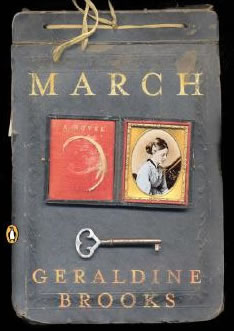The Forgotten Garden
 I read Kate Morton’s The Forgotten Garden for my book group. I was enthusiastic about reading this modern-day Gothic tale about a child mysteriously left on an Australian dock whose quest to uncover her true identity ends up spanning three generations and two countries. On the whole I enjoyed the book, but there were many times during its 549 pages that my interest flagged.
I read Kate Morton’s The Forgotten Garden for my book group. I was enthusiastic about reading this modern-day Gothic tale about a child mysteriously left on an Australian dock whose quest to uncover her true identity ends up spanning three generations and two countries. On the whole I enjoyed the book, but there were many times during its 549 pages that my interest flagged.
Maybe part of the problem is the number of similar tales I’ve read recently: Elizabeth Goudge’s The Bird in the Tree and The Little White Horse, Frances Hodgson Burnett’s The Secret Garden. Part of the resemblance to the latter is surely intentional, since Burnett makes an appearance in the novel. The common threads of a secret, walled garden haunted by a past that involves, literally, a buried family tragedy, a landscape exploding with fertility, and a lonely female on a quest tie all these stories together and gave me the same sense of deja vu that the characters had. By the time I reached this story, it was beginning to feel a little stale.
The novel could also stand more rigorous editing. I found much of the dialogue flat and implausible, and the characters didn’t strike me as terribly “real” psychologically. I’ve been spoiled by Elizabeth Goudge’s landscape descriptions, so I was keenly aware that the physical settings of this tale didn’t really come to life. About a third of the book could have been trimmed away to leave a leaner, better-paced tale.
This is a very popular book, and I’m sure that my response has as much to do with my recent reading list (and readiness for a change) as with the novel itself. I didn’t dislike it, actually, and so once again I come face to face with the inadequacy of my written reflections on what I read. My experience of working through The Forgotten Garden was not nearly as critical as this review might indicate. Maybe the truth is that the bottom line in reading is not always the literary quality of a book, but its effectiveness at creating an imaginative world that becomes stable enough to sustain a reader, even through the slow spots of a chunkster like this.

